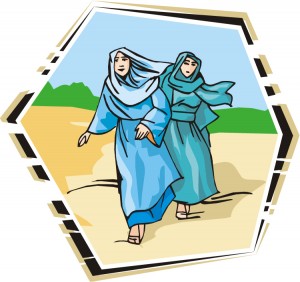2 Chronicles 8:11, Daughter of Pharaoh…my wife. Solomon couldn’t bring his heathen wife into the City of David, for fear of defiling the holy ground thereof. So why did he marry her in the first place?
This obviously was a marriage strictly for political purposes (and being a kings daughter, she was probably good looking to boot!)
This type of action on Solomon’s part was the beginning of his spiritual descent that eventually led to idolatry and witchcraft.
Even as Samson had a weak spot for beautiful women and it led to his downfall, the same happened with Solomon. Instead of trusting in YHVH to be the strength of his kingdom as he had promised to do, Solomon relied on comprising political alliances, horses and chariots—something which YHVH commanded his servants not to multiply (Deut 17:16). To do this would lead them into a secular downward spiral orientation and take them away from trusting in Elohim for their defense and protection.
What is the lesson in this for us? Though we are in the world, we are not to be of the world, as Yeshua said in John 17. To live on this earth, we must sagaciously navigate the waters of this cosmos without getting sucked in to using worldly methods to advance the kingdom of Elohim. If not careful and discerning we can fall into the trap of using the methodologies of this world as a pretext for doing “the Lord’s work” when in reality we’re fulfilling our own carnal agendas and desires for money, power and public recognition.



